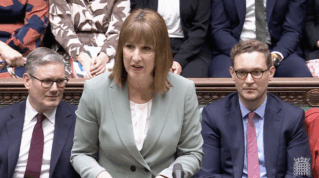I’ve been a champion for skills and FE for over 50 years and coming to party political conferences for almost as long. This year has been like no other. In their conference speeches, the prime minister, Rishi Sunak and the man who aspires to the role, Keir Starmer name-checked FE Colleges and pointed to clear policy actions they would take on skills and technical qualifications.
2024 might well go down in history as the year in which there was agreement, at last, that skills change people’s lives, help create safer, connected and thriving communities, and increase the productivity that drives economic growth. What in the past was a political football, not seriously embraced by either party, has well and truly ‘come home’.
How timely then that the post-Augar partners who came together as the Future Skills Coalition (FSC), namely City and Guilds, AoC and AELP, with the support of a wide range of key partners and employers, made this year the occasion to create the Skills Hub, a zone in the main exhibitor area of each conference. Timely alignment and hard-won, clever synchronicity.
The prominent presence of the Skills Hub stand, showcasing a dazzling array of employers and skills providers and partners, together with a series of round tables and fringe events at this year’s party conferences is testimony to the collective endeavour of all involved. It represents a significant move forward that all those concerned with skills delivery, standards, and improvement were able to unite around three central policy areas which any government that takes skills seriously, of whatever political hue or makeup, would be wise to heed:
- a national policy strategy supporting local, inclusive growth
- a right to lifelong learning free from restrictive constraints
- fair, accessible and effective funding
Having reached such a milestone for the sector, it was heartening that the new shadow skills minister, Seema Malhotra responded with an equally welcoming collaborative approach, making it clear that she will work with sector partners to design deliverable implementation plans.
It represents a significant move forward
What then are the next steps and priorities for the FSC? How will FSC ensure that the insights of the practitioners assembled in Manchester and Liverpool will be fed into emerging post-election actions? The diversity of sector partners ensures a range of different ideas, which can be picked up by politicians aiming to translate political decision and policy determination into effective action and successful outcomes. It is worth highlighting, however, that there was broad agreement on addressing the following four policy areas.
Workforce planning
All stakeholders want to see immediate action on workforce development, recruitment, and retention, by putting in place a plan to enable FE colleges and independent training providers to build capacity in their employees and to attract new staff with the expertise required to teach the skills needed in today’s and tomorrow’s labour market.
Building on the sector’s strengths
Even if politics requires a ‘cosmetic’ re-branding in some areas, the aim should be to improve on some of the innovative foundations already laid over the past 13 years (e.g. LSIPs and LLE).
Connecting and devolving
Reform should focus on better connecting the different parts of the post-16 skills system, by reforming operational aspects such as the apprenticeship levy and the engagement of SMEs, and by supporting evolving models of devolution in areas of England that have a clear vision and accountable structure for skills delivery.
Measured progress on qualifications
The sector is almost unanimous in its desire for pausing the defunding of level 3 qualifications and reviewing with employers and providers a reasonable timescale for the rollout of T Levels.
Over the coming months, I am clear that the sector stands ready to respond to the important intentions signalled by political leaders. We look forward to meeting with the current and shadow secretaries of state for education and their skills ministers to work through practical and fundable ways in which political ambition and sector capacity can be united to ensure skills are at the heart of the next decade of our nation’s renewal.

















Your thoughts